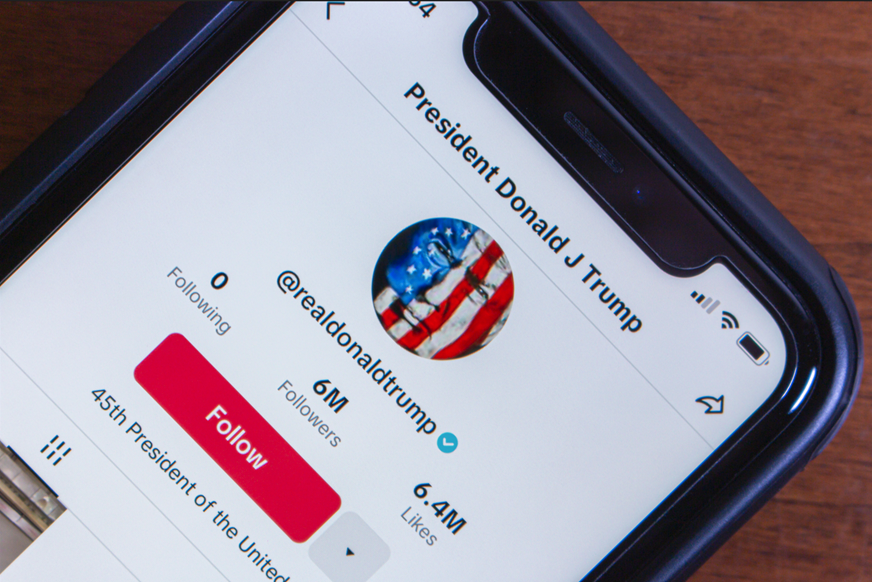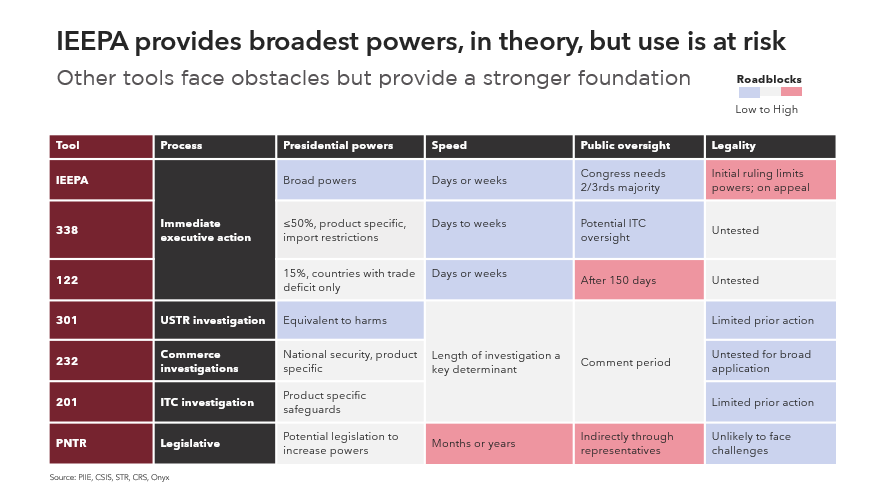
Search our articles
Is the end of IEEPA the beginning of a more effective Trump admin?

Key Insights:
- What is happening: Courts ruled this week that the Trump administration’s broad tariffs, impacting both the administration’s “Liberation Day” and drug trafficking related tariffs. On May 29th, the tariffs were allowed to remain in place until an appeal is heard.
- Why it matters: Regardless of the outcome of these court cases, the Trump administration’s negotiating stance is heavily impacted by the ruling and companies face another source of uncertainty. This decision likely delays clarity for companies hoping to adjust to the specifics of the US tariff regime.
- What happens next: Immediate action is expected from the Trump administration to lay groundwork for alternative approaches. These are, generally, less broad and require de-centralized decision making. If Trump’s broad tariffs are blocked, it will almost certainly dampen the breadth and magnitude of tariffs but – crucially – it may well leave behind longer-lived and more effective approach.

“This case is not about tariffs qua tariffs. It is about whether IEEPA enables the President to unilaterally impose, revoke, pause, reinstate, and adjust tariffs to reorder the global economy. The Court agrees with Plaintiffs that it does not.”
— DC Circuit Court Decision
The Trump administration has undermined its ability to claim a clear victory. While it has shown a preference for maximalist approaches focused on leveraging US market access and cutting benefits to global trade partners, these strategies have faced severe challenges in practice – political, economic, and geopolitical – resulting in rapid and unpredictable shifts. The lack of policy clarity and cohesion has, as a result, undermined the administration’s efforts to produce significant deals. If the rulings stand, its leverage will be further diminished in the near term, but may ultimately create more targeted and effective leverage.
The Trump administration has many options for action, but – if the use of the International Emergency Economic Powers Act (IEEPA) is curtailed – the Trump administration will have less space for unilateral action. This will undoubtedly impact short-term negotiations, but arguably put the administration on a more sound path to carry out its policy goals. Of note, there are efforts to expand the toolkit. Inside Trade reports that both the House and the Senate have referred a bill to committee that would allow admin investigations into existing or intended evasion of 301 tariffs by entities, opening the possibility of ownership-specific tariffs if the bill is passed.
But any shift in strategy is likely, by force, to be more focused and better supported because of characteristics of the available tools. The trick will, of course, be getting them in place.
- Congressional oversight: One of the most likely approaches – the use of Section 122 – requires Congressional approval about 5 months after it is put into place. Given the razor-thin majorities and approaching midterms races, this could upend the ability of the President to threaten long-term tariffs. As a result, it is only a temporary solution for the Trump admin.
- From broad to specific: The other options provide clearer constraints on presidential power than the IEEPA tariffs. Many of them are either product specific or only apply to countries with which the US runs a trade deficit.
- Investigations required: Others – particularly Section 301 - require investigations. These will likely be sped up, perhaps impacting their credibility and legal standing.

But perhaps one of the most important outcomes could be a degree of stickiness that the IEEPA tariffs lack. The countdown on Trump’s time in office and the incredible breadth of affected countries and products has impacted the character of negotiations. Countries may reason that even if the next president has similar beliefs, they are unlikely to have the same maximalist approach or political cache. More targeted investigations with greater factual backing rolled out one at a time would be much less disruptive economically and more likely to stick long-term.
Topics: North America, Trade, Trade Agreement, Economy, Politics

Written by Onyx Strategic Insights

